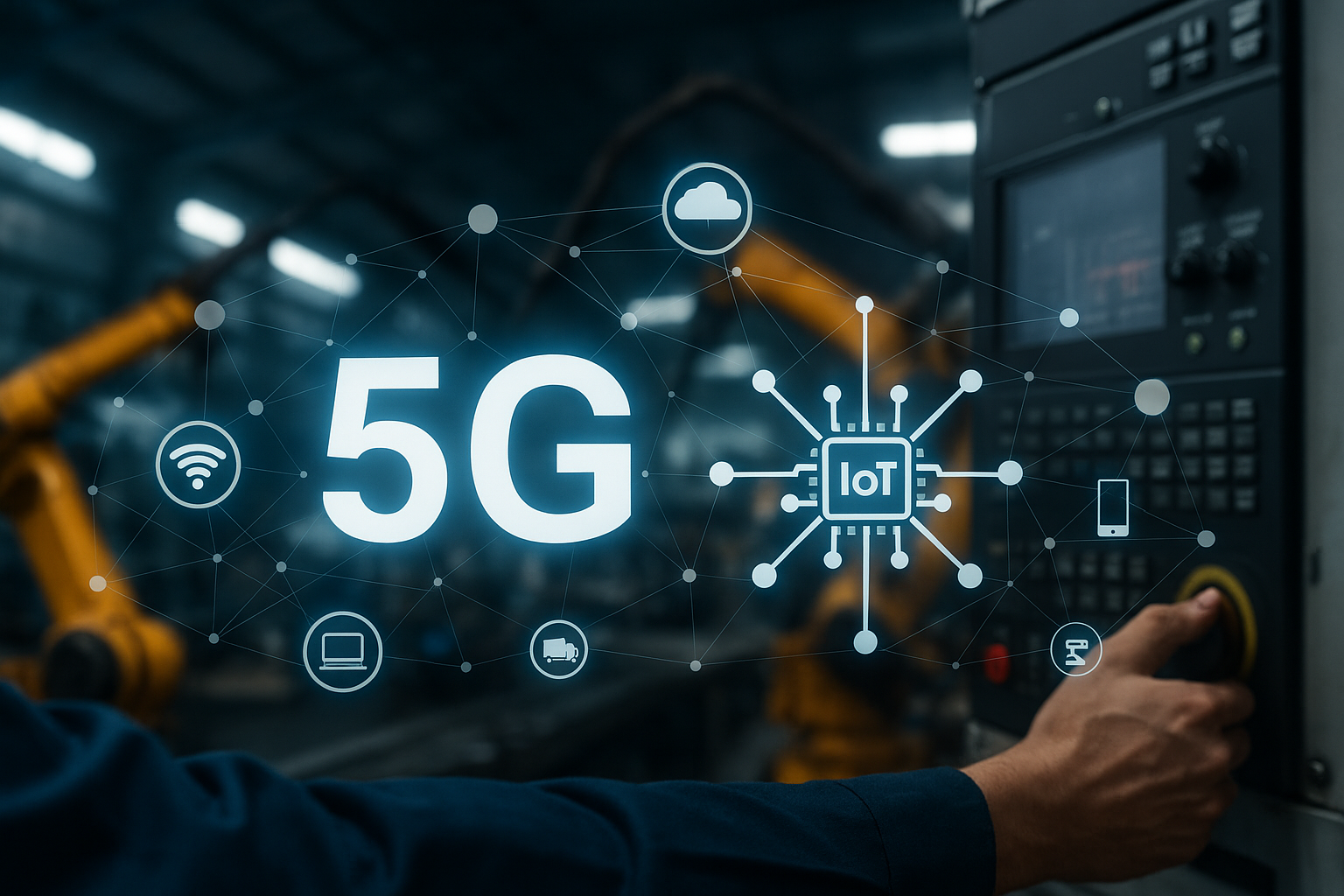5G and IoT reshape industries with smarter connectivity
The combination of 5G and IoT is redefining how industries operate. Ultra-low latency networks and billions of connected devices enable a new era of automation and intelligence. Factories, logistics, healthcare, and urban systems are adopting solutions that integrate sensors and high-speed connectivity to optimize performance.
5G and IoT in industrial efficiency
Industrial automation has accelerated with the deployment of 5G networks. Machines equipped with IoT sensors collect and transmit data instantly, enabling predictive maintenance and reducing downtime. Logistics chains benefit from real-time tracking, while manufacturers can adjust production based on immediate demand signals. These advances highlight how 5G and IoT together increase efficiency and lower operational risks.
Transforming healthcare and urban environments
Beyond factories, the impact of 5G and IoT extends to healthcare and smart cities. Hospitals can connect medical devices to monitor patients continuously, supporting faster response times in critical situations. Cities deploy IoT infrastructure to control traffic flow, energy consumption, and public safety. These applications show how connectivity directly improves quality of life while driving sustainable growth.
Strategic implications for businesses
Organizations adopting 5G and IoT are not only improving operations but also creating new business models. Data collected through connected devices fuels analytics that guide strategic decisions. Real-time visibility across assets opens opportunities for cost reduction, customer personalization, and competitive differentiation. However, integration requires investment in cybersecurity to protect the expanding digital surface.
The future of connected industries
The synergy between 5G and IoT will continue to accelerate industrial transformation. Companies that embrace this connectivity early gain a decisive advantage in scalability, responsiveness, and innovation. By merging physical infrastructure with digital intelligence, industries evolve toward smarter ecosystems that anticipate needs and adapt dynamically to change.
Source: Forbes

